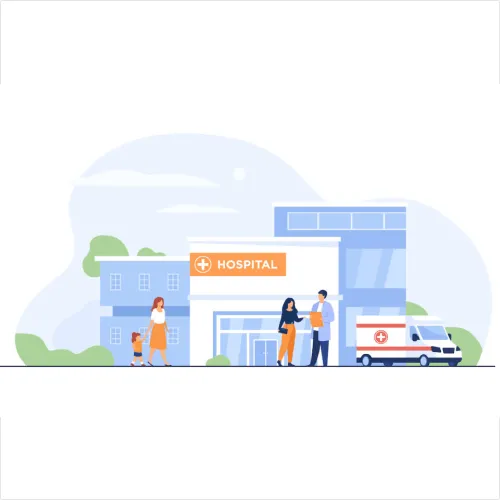How do you start the process of applying to u.S residency as an International Medical Graduate (IMG)
Applying to a residency in the United States as an International Medical Graduate is a popular route to take for many reasons – excellent training in a specialty specific-field, opportunities for enhanced compensation upon completion, and a path to eventually practicing in the United States. Despite this being a popular route for international graduates, there are certainly more hoops to jump through and the process can often seem daunting. For this reason, we have created a step-by-step guide to help with the process:
1. Register with the ECFGM
The organization stands for the Educational Commission for Foreign Medical Graduates (ECFMG ). This is a necessary step, as this commission is responsible for certifying and international medical graduate prior to being eligible for residency in the United States.
2. Plan to perform an Externship at your target residency programs in the US

A great way to increase your chances of matching at a US medical residency program is to do an externship, develop a relationship with the attendings and program director there, and ensure a letter of recommendation from that program. Often times, this will not only drastically increase your chances of matching to that program, but increase your chances of matching to other US residency programs in the area, as program directors from surrounding residencies tend to be aware of one another and greatly respect the opinions of their colleagues.
For a quick resource on programs that accept international medical graduates for externships and so called ‘away rotations’, the associated fee’s, and locations, you can visit this link: 50 HOSPITALS IMG’s Can get a Rotation in the USA – Project IMG
3. Register with the USMLE, and pass the USMLE Step 1 and Step 2 exams
Pass the USMLE Step 1, and the Step 2 CK exams. You may have read that Step 2 CS (clinical skills) was once a necessary component, however this was suspended during the Covid-19 pandemic and it has been announced that they have permanently removed this requirement. As an aside, Step 3 does not need to be taken prior to residency application and can be taken during your intern year.
The best resources for passing your Step 1 exam are Pathoma, First Aid, and UWorld for Step 1. In addition, UWorld and Amboss for Step 2 will be your best resources. The tests cost $985 per exam, and you cannot take more than 4 attempts at any single exam. And can only take any single exam 3 times within a 12 month period.
Step minimum scores (passing for step 1 is approximately above bottom 5 percentile, 209 for step 2 CK, and 198 for step 3) : Examination Results and Scoring | USMLE
4. Register with the AAMC and ERAS

Register with the AAMC (Association of American Medical Colleagues), and create an ERAS account (Electronic Residency Application Service) – all residency applications must go through ERAS in the US. You can utilize FREIDA to search for residency programs in different areas and get an idea of Step score averages and competitiveness required.
In order to full register for ERAS for the residency application service, successful completion of the ECFMG process and receipt of a 14-digit token that you can use to officially register in ERAS is required. Cost for certification is $160. (ECFMG On-line Application) (Fees Overview (ecfmg.org))
If you have questions specifically about the ECFMG process and components, here is the best link: ECFMG On-line Application
5. Register with the NRMP and submit your rank list
The NRMP is the National Residency Match Program. Once you have completed your ECFGM application, registered and submitted your ERAS application to your residency program, and conducted your interviews (typically from October to February of that application year), you will need to finally register for NRMP in order to rank your programs and submit that list in order to be ‘matched’. The match typically happens in the third week of March, but you will need to submit your rank list with the NRMP before March 1st to be safe. For a breakdown of how the match process in the United States works, visit this helpful link: Rank Your Programs | NRMP
6. Extra Helpful Bits of Information:

You may here the term OASIS at some point. OASIS is the On-line Applicant Status and Information System (OASIS), ECFMG’s web-based information service for ECFMG applicants. You can use it to check exam scores, receipt of Tokens, ECFMG updates, and J1-Visa status
J1-Visa is also required for applicants (temporary nonimmigrant visa offered through BridgeUSA): https://www.ecfmg.org/evsp/about.html. Important note on this is that this is a temporary visa, and to actually stay in the US afterward you would need to fulfill one of the below criteria:
If you want to stay in the United States after completing your training (or apply for a Green Card), keep in mind that there is a rule in place that states that you must first go back to your home country for a period of two years. This, of course, is a major hardship for many people.
Waivers can be granted for this two-year requirement if you have a US citizen spouse or child who will have significant difficulty related to you having to return to your home country. They can also be granted if there is a significant risk of persecution should you return home. The most common waiver option, however, is granted by getting an official recommendation from an Interested Government Agency (IGA) in need of your services or by securing on the 30 Conrad Waivers each U.S. state may confer in exchange for three years of service in a qualifying medically underserved area. To read about more options, look at this link: https://fordmurraylaw.com/5-us-business-visas-for-foreign-born-physicians/
Frequently asked questions
Since medical schools can receive thousands of applications for very few spots, and many of these applicants all have average or above average GPA and MCAT scores, the personal statement can become and important differentiator.
Absolutely. You should have multiple people review your essays for grammar and spelling errors, transition quality, and overall message. The most polished essays that are application-ready have usually been through at least 2 or 3 revisions prior to submission.
The most common format for residency interviews is one-on-one or panel interviews (two or more interviewers with one applicant). MMI interviews are being employed more in medical school interviews, though it is still possible to encounter this in a few residency programs.
During interview season, you may have many interviews and it will be difficult to remember everything that occurred during each day and your impressions when comparing programs prior to ranking for the match. For this reason, you should take a few minutes to write down your impressions directly after interview day for each program.
Anywhere between 1.5 to 3 minutes is a safe range for answers, although a few seconds more or less than this is completely reasonable depending on the question. The quality of the answer, given concisely and directly, is far more important than the amount of minutes you are speaking. That being said, avoid rambling for overly long periods of time.
Thank you letters may not make a difference in ranking at a program, however they are a thoughtful and nice touch. The exception to this is if a program specifically states not to send thank you’s – then you should respect their request. For letters of intent, it is appropriate to choose one program if it is your clear number one choice and send an email to the program director letting them know. Do not choose more than one program to send this letter to – it is first and foremost dishonest to do so, and medicine is a small world and it is not advisable to burn bridges.
